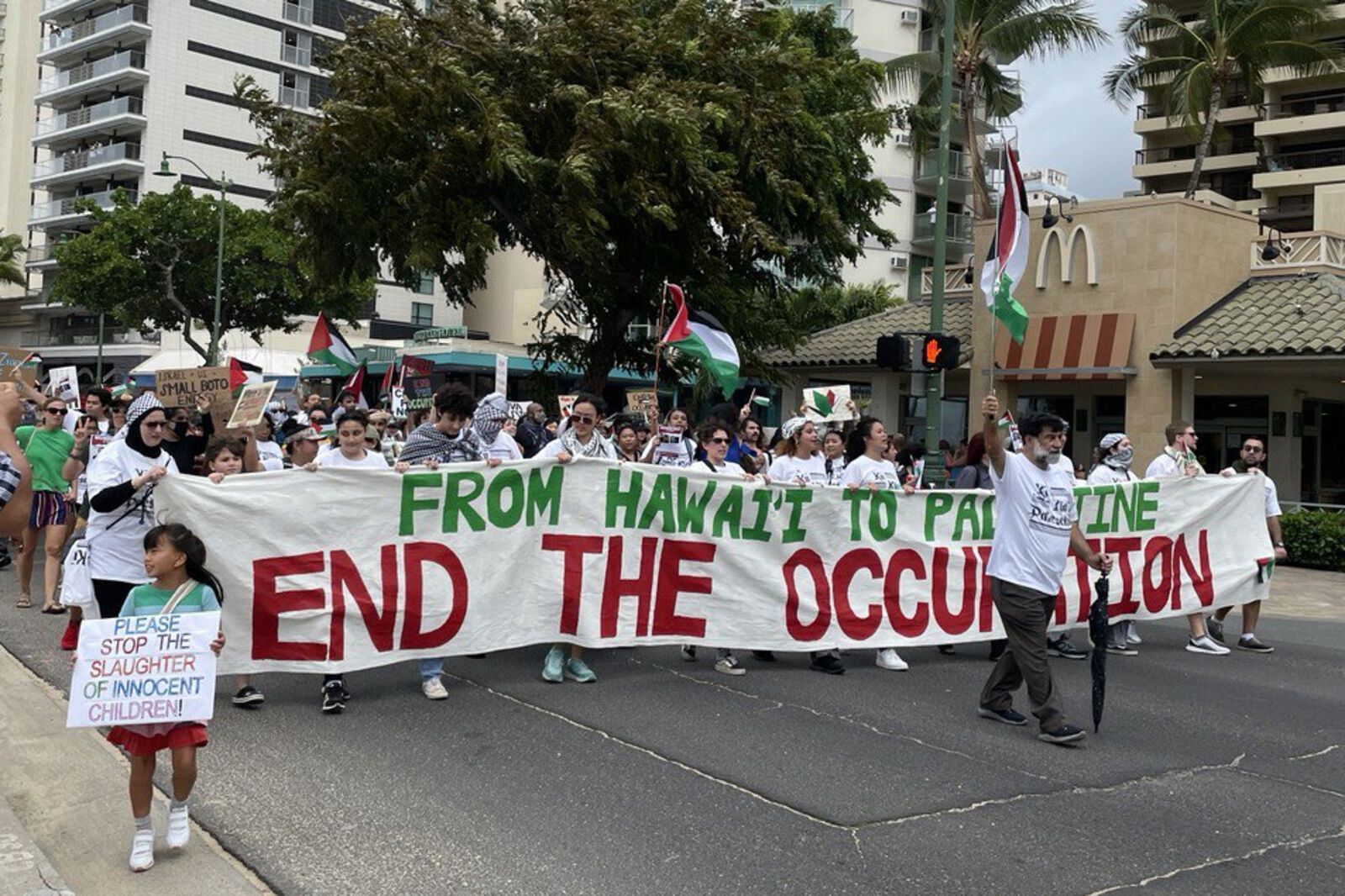What's Love Got to do with it (curating a biennial/triennial that is)? – Talk by Binna Choi
20:00–22:00
de Appel, Tolstraat 160, Amsterdam

A moment during the Free Palestine Solidarity March for Peace 2024, 28 January 2024, Honolulu, Oahu, photo by Binna Choi
The talk by Binna Choi is followed by a conversation between Binna Choi, Gabi Ngcobo and Yazan Khalili and its is co-presented with Casco Art Institute: Working for the Commons.
Aloha will animate world intelligence because it speaks truth in ways that encourage growth and healing. This form of intelligence will be challenging for institutions because of its transparent nature, and we offer it now as nourishment for us to consider how it will be expressed in our shared future.
- Manulani Auli Meyer, “Spirituality Centered around Aloha/Pono: A Discipline of Love and Truth”
Over the last three decades, large-scale and perennial contemporary art events like biennials and triennials have not only been burgeoning but also established themselves as institutions of art around the world. They embody the desires and aspirations of different local groups and communities within and beyond art and a great deal of resource is invested in them. There’s no tangible sign that they will diminish anytime soon, as with many of the Covid-19 “great reset” scenarios. Hawaii Triennial, which has been re-articulated as such for the 2022 edition from being Honolulu Biennial born in 2017, is a proof to that. In its fourth iteration in 2025, it has multiplied its venues and even extended them to other islands – Maui and Hawaii Island – in the Hawaii archipelago. Who and what are the constituencies of Hawaii Triennial and what expectations are posed to it? How does it work, being positioned in the context of the archipelago’s complex history and present around anti-colonial struggles, sovereignty movement, ongoing flux of migration and mili-tourism (after Teresia Teaiwa)? And what (alternatives) does it offer to the rest of the (art) world? Binna Choi will address these questions from her position as one of the three curators for the upcoming Hawaii Triennial 2025, entitled ALOHA NO.
As Hawaii is perhaps one of the most popular and misunderstood places in the world, the Hawaiian word “aloha” has an equivalent status. Known as a Hawaiian greeting and overused for all kinds of branding, aloha in fact takes a central space in the indigenous Hawaiian epistemology, ways of living and its cultural, social and political movements. “Aloha" carries a profound meaning and value that can be translated in English as love, affection, kindness, compassion, gratitude, grief, when seen outside the contexts and images of colonial mili-tourism and capitalist commodity markets, where practices of decolonisation, indigenisation and commoning are cultivated. ALOHA NO calls to unlearn Hawaii and “aloha” as some know it, and re-learn them, most desirably, to learn to keep the practice of loving in this conflictual and divided world, flagging ALOHA with the addition of NO which should be read both as a negation and resistance in English and as an affirmative intensifier in Hawaiian language.
This event is co-presented with Casco Art Institute: Working for the Commons and takes place in de Appel on Wednesday 28 August, at 8pm. The event will be in English. Kindly reserve a seat, as it helps us plan ahead.